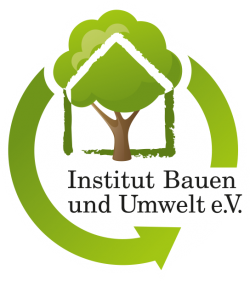Sustainability and responsibility of Panariagroup Deutschland
Thinking sustainably. Acting sustainably.
As one of Germany‘s leading tile manufacturers, the Panariagroup Deutschland GmbH has joined the IBU (Institut Bauen und Umwelt e. V. — Institute Construction and Environment) whose declared objective is to promote sustainable construction. Sustainability is, however, not just an abstract label for the Group; it represents a specific commitment to consistent environmental management. To this end we analyse all of our processes that impact the environment and redesign them where necessary.
We focus on ecological compatibility even before we start manufacturing a tile. Panariagroup Deutschland factories therefore mainly work with suppliers who manufacture raw materials from natural origins and who are certified in accordance with specific guidelines, such as the European Union‘s Birds Directive. Added to which, excavating companies must submit an estimation of the environmental consequences and their recultivation plans.
The fresh water used in the actual production process is obtained from our own well and not from the tap. Every last drop of the water we use is recycled and used again.
Reduced emissions of harmful substances are also extremely important for the plants. Emissions from the firing process are below the strict limits of the German Clean Air Act (TA-Luft) thanks to the use of state-of-the-art, efficient emission purification systems.
In addition, the Panariagroup Deutschland focuses on energy-efficient measures. The waste heat generated during the firing process is used for the dryers on the sites. The lighting in the production halls is selectively switched and turns on and off automatically as needed.
No hazardous waste whatsoever is produced during the entire manufacturing process. A lot of the scrap tiles are recycled into the production process, leaving just very little waste. And even this waste can be recycled and used as building or raw material for other ceramics processing operations.
Kerateam is a member of the Saxon Environmental Alliance, an association of the Saxon State Government and Saxon companies, which aims to achieve environmental goals and reduce environmental pollution in the Region.
All of the measures that constitute our in-house environmental management help to ensure that the Panariagroup Deutschland meets even the most stringent standards. Although the Panriagroup plants have already achieved a great deal, we will continue to strive to further improve our ecobalance in the future.
The German Institute for Building and the Environment (IBU) is the largest association of manufacturers from the building materials industry with more than 200 companies and associations. The IBU is committed to sustainable construction, especially with regard to the impact on the environment and health of construction products and building components. With its Environmental Product Declarations (EPDs), the IBU provides the basic data for the ecological assessment of buildings.
IBU - substainable construction EPD A1
Here you can view the Environmental Product Declaration EPD A1 for the ecological building assessment for older tenders and construction projects.
Download EPD A1 (PDF, german language, 2.8 MB)
IBU - substainable construction EPD A2
Here you can view the Environmental Product Declaration EPD A2 for the ecological building assessment for older tenders and construction projects.
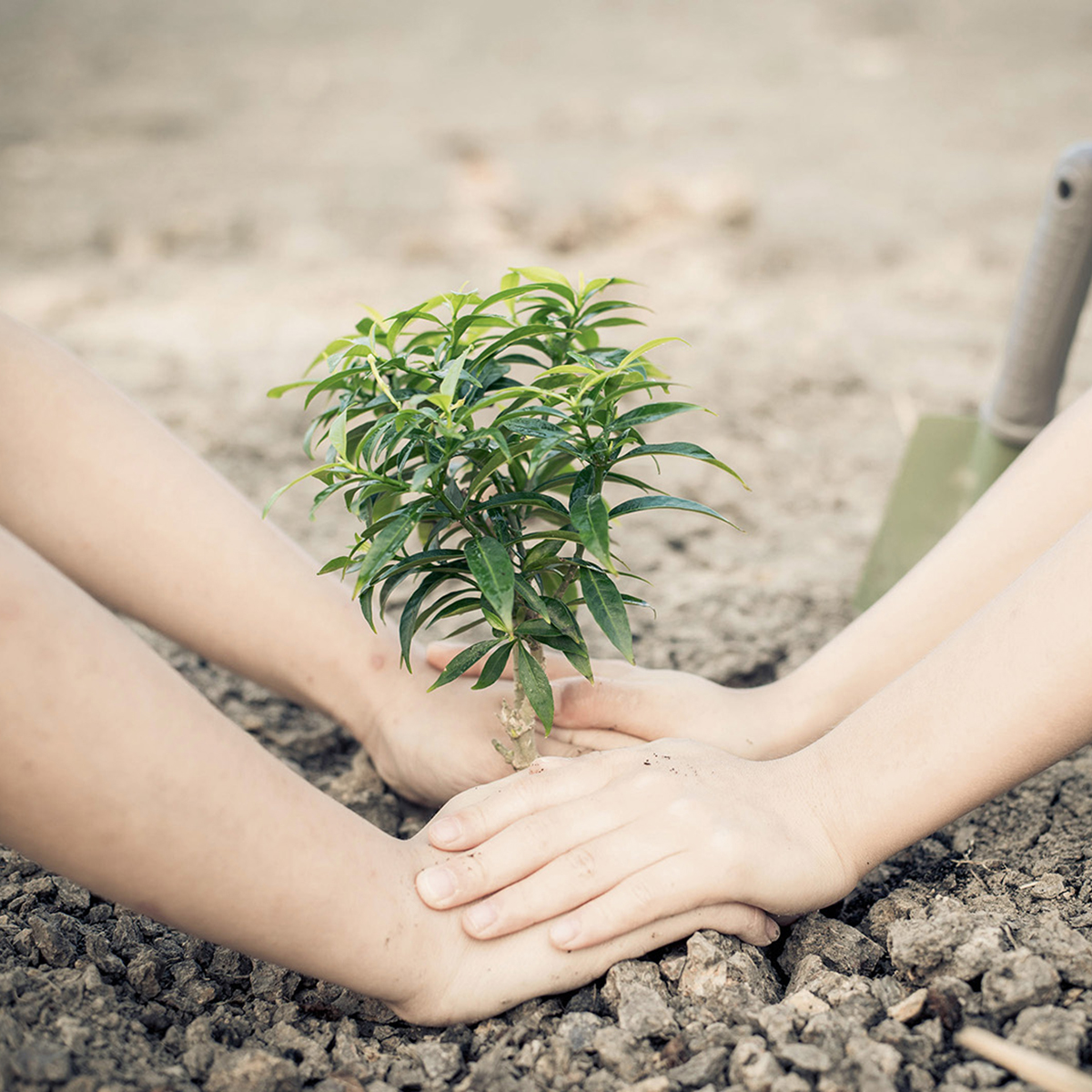
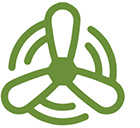
Use of modern exhaust-air-technology
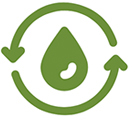
Wastewater-free production process thanks to treatment, and water from our own on-site well
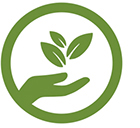
Collaboration with eco-certified suppliers of raw materials and intelligent recycling of broken material
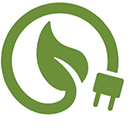
Reduction of energy consumption
The tile: ecological and sustainable quality
For the Panariagroup Deutschland, sustainability is not just an empty promise! The brands now also document this with a new label on the sample tiles at tile trade exhibitions.
In addition to tiles, parquet, laminate and carpets, vinyl floor coverings in particular are currently enjoying great popularity. The reason is the price and the supposedly simple installation. Doing it yourself has become a trend, which means that building owners are increasingly taking things into their own hands. What used to be primarily a phenomenon in the field of fashion is now spilling over into other areas such as the construction sector: it has to be cheap. When the emphasis is on lower priced floor coverings, some important aspects are often neglected, and these include not only the quality of the materials but also potential health risks.
Although new-generation plastic floorings no longer have harmful phthalate-containing plasticisers, the long-term effects of the alternative, supposedly harmless, plasticisers are not yet known. This is, among other things, because the amount of substances absorbed by the air steadily increases.
For anyone who wants to live in a healthy and environmentally friendly way, ceramic tiles are the ideal choice. Conservation of resources and environmental protection are top priorities for the tile – from the raw material extraction to the recycling process. Also in terms of durability and ease of care, ceramic tiles are always the superior solution, providing a combination of benefits not found in any other floor covering. Ceramic tiles are:
- Robust, resilient and long-lasting. While other floor coverings can scratch easily, tiles last practically forever.
- Very easy to care for and clean.
- Ecological, because they are produced from natural raw materials.
- Free from harmful substances. Ceramic tiles do not emit any substances that are hazardous to the environment or health and are neutral to ambient air.
- Ideal for allergy sufferers, because, unlike, for example, carpeting, no mites or pathogens can form.
- UV-resistant: they do not fade and become brittle. This is a clear advantage over wooden flooring.
- Antistatic. Unlike many other floor coverings, they do not become electrically charged when walked upon or subject to friction.
- Heat-retaining and -conductive. For an efficient use of underfloor heating, there is practically no better floor covering than tiles – which have an excellent thermal conductivity.
- Heat resistant and waterproof. In the case of fire, there are no toxic gases and the inseparability of the tiles often protects the substructure from being destroyed.
- The ideal option for passive air-conditioning in summer. In winter, tiles store the incoming heat from the sun.
- Recyclable. Any fragments are returned to the production cycle as recycled products.
- Slip-resistant, frost-resistant and offering flexibility in design thanks to the numerous colours and formats.
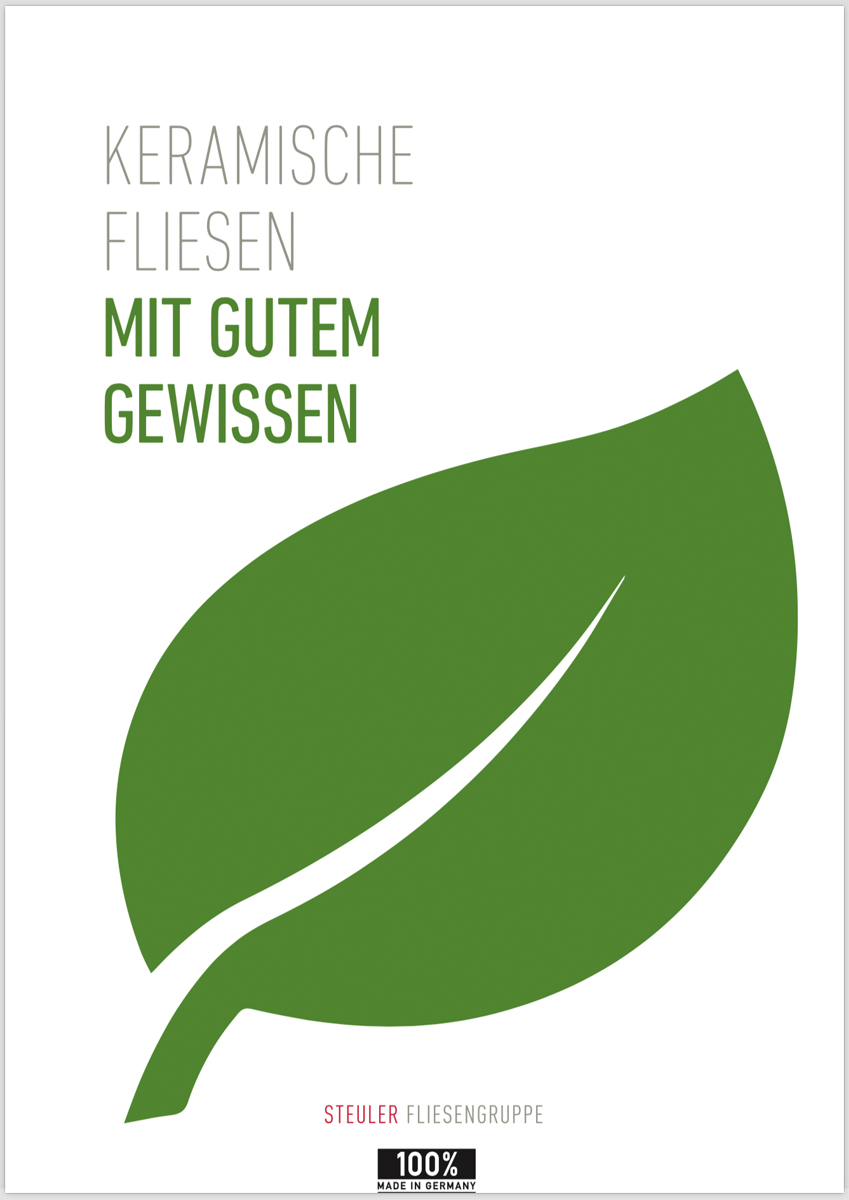
Sustainability - With a clear conscience
Brochure sustainability
Download Brochure (PDF, english, 3.4 MB)
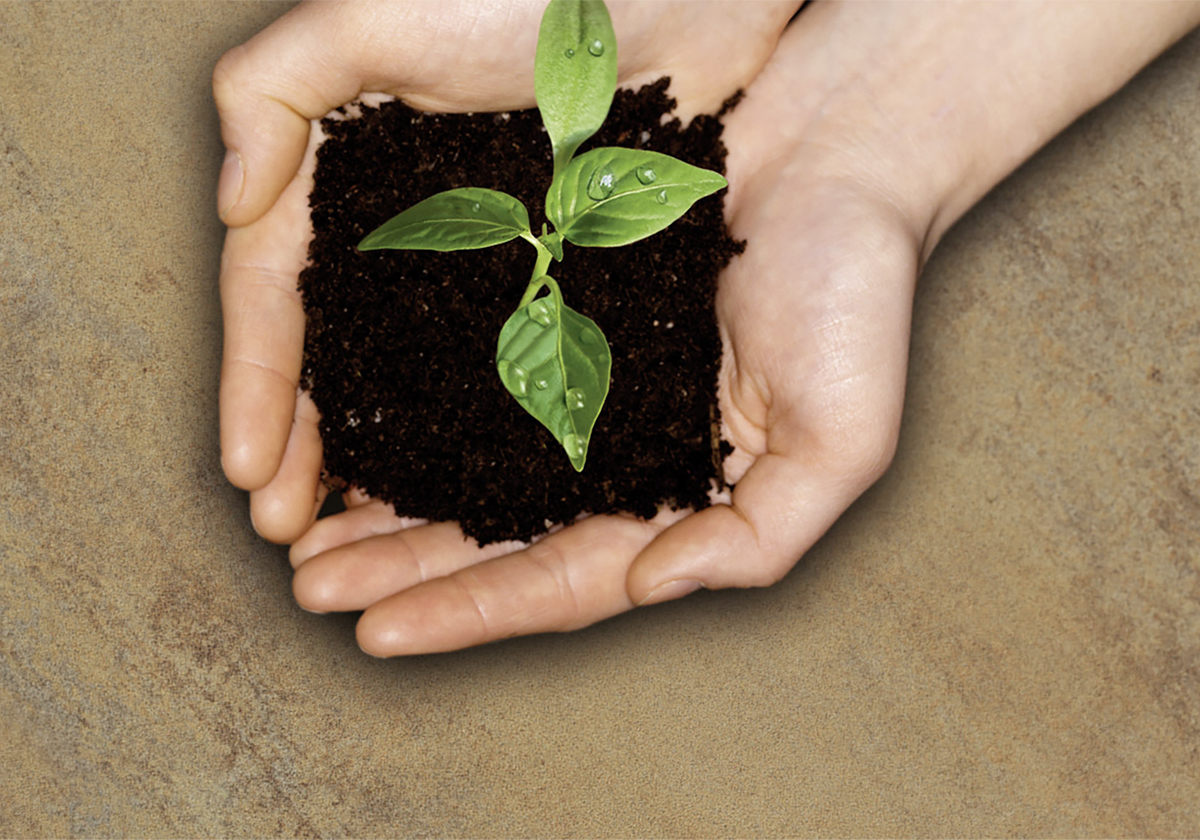
The tiles are manufactured in modern production facilities in Germany, Italy and Portugal. In this way, we not only secure jobs in various regions of the three countries, but also ensure a high reduction in CO2 emissions thanks to short transport distances, reliable delivery times and comprehensive, prompt advice from our field sales team. In addition, as a member of the German Ceramic Tiles Association and the quality initiative “German Tile”, we actively promote the sustainable and environmentally friendly production of ceramic wall and floor tiles. The plants of the Panariagroup Deutschand are members of the Institute for Building and the Environment (IBU) and verified with the EPD in accordance with ISO 14025 and EN 15804. With the IBU seal, we are able to document the sustainability of our products with an independent eco-label that stands for maximum neutrality and credibility. This provides planners and property developers in particular with the opportunity to meet the demands of sustainability in building and to be able to certify their constructions as sustainable buildings.
Even before a tile is created, close attention is paid to the ecological compatibility. This begins with the processing of natural, locally sourced raw materials such as clay, kaolin, quartz and feldspar. In the production itself, the fresh water used is not taken from the mains drinking water supply, but from the facility’s own wells. Afterwards, the water is recycled and reused. Emissions from the firing process are below the strict limits of the German Clean Air Act (TA-Luft) thanks to the use of state-of-the-art, efficient emission purification systems. The environmental protection measures are thus geared to the lowest possible energy consumption and low-emission exhaust air. During the production process, no hazardous waste is produced. A large proportion of the broken tile fragments are returned to the production cycle, forming the raw material for new tiles. The small amount left over is used as a soil substitute (for example for road construction) or as a raw material for other industries.
All plants of the Panariagroup Deutschland are not only subject to the strict regulations, which, for example require a closed water cycle, but have been working in their own interest to permanently reduce energy consumption. One example is the waste heat generated during the firing process. This is fed into a different part of the plant. Or the lighting in the production halls. The light is automatically adjusted, and switched on or off, as required.
If it is ever planned to replace the tile flooring, the possibilities are endless. Depending on the quantity and material, the tiles can be reused during the purposeful dismantling of a building. During renovations they can often remain on the floor or wall and a new surface can be applied to them – something that is not possible when other flooring materials such as carpeting have been used. If these recycling options are out of the question, the tiles that remain on the construction site are easy to dispose of and are not a burden to the environment.
Our recommendation: do not to be blinded by advertising slogans and cheap floor coverings, but get more information and pay increased attention to ecologically sound building materials that ensure a healthy living environment.
